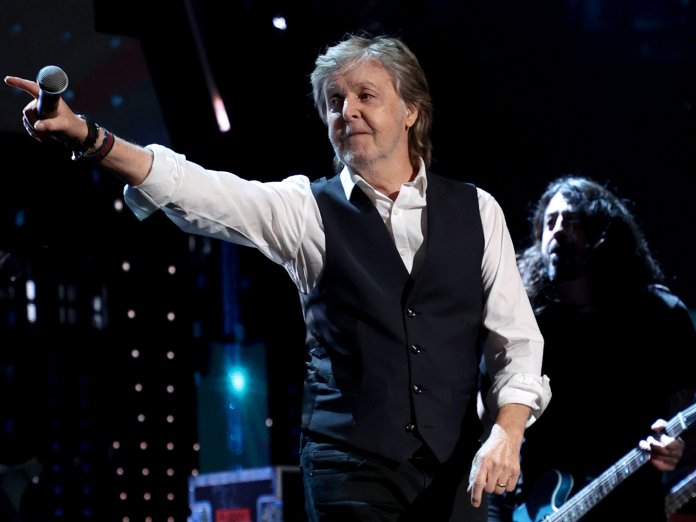Paul McCartney has spoken about the type of crowd The Beatles resonated with, saying they were always understood by “working people”.
- ORDER NOW: Bruce Springsteen and the review of 2021 feature in the latest issue of Uncut
- READ MORE: Peter Jackson: “We only think we know The Beatles…”
In a new interview with The Guardian about Peter Jackson’s Beatles documentary Get Back, McCartney looked back on the group’s final live performance.
While the Fab Four performed on the roof of 3 Saville Road on January 30, 1969, local businessmen in the streets below were complaining about the disruption they were causing, with one caught on camera saying “it’s a bit of an imposition to absolutely disrupt all the business in this area”.
“There’s always the guy in the bowler hat who hates what you’re doing,” said McCartney of the then-divisive nature of The Beatles.
He continued: “He’s never going to like it, and he thinks you’re offending his sensibilities. But you’ve got to remember, as we always did, there’s the people who work for that guy. There’s the young secretaries, the young guys in the office, or the tradesmen or the cleaners. Those are the people who like us. Also, a lot of the bosses too. We always knew that there’s the establishment, then there’s the working people. And we were the working people.
“Working people tended to get us, and understand what we were doing. And occasionally, you would get the kind of snob who would get angry. In a way, that was part of the fun.”
The Beatles: Get Back comes to Disney+ later this month.
According to McCartney, the three-part documentary changed his perception of The Beatles’ breakup. “I’ll tell you what is really fabulous about it, it shows the four of us having a ball,” McCartney told The Sunday Times after watching the film. “It was so reaffirming for me. That was one of the important things about The Beatles, we could make each other laugh.”
He went on to add: “I definitely bought into the dark side of The Beatles breaking up and thought, ‘God, I’m to blame.’ But at the back of my mind there was this idea that it wasn’t like that. I just needed to see proof.”



